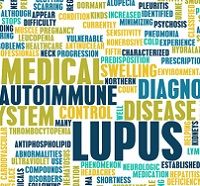Lupus: Alternative Treatment Found
Enteric-coated mycophenolate sodium (EC-MPS) should be considered as an alternative option to cyclophosphamide, a Thai research team found.

A recent study showed that enteric-coated mycophenolate sodium (EC-MPS) should be considered as an alternative option to cyclophosphamide (CYC) in the treatment of lupus nephritis (LN). Published in LUPUS Science & Medicine, and authored by Sirirat Anutrakulchai of the Department of Medicine at Khon Kaen University in Thailand, and colleagues, the study was released on January 14, 2016.
Patients with LN are at risk of rapidly developing end-stage renal disease. The most prevalent, effective treatment is CYC, but its use is limited by cumulative toxicities, particularly in patients who “were previously treated with CYC, and they have a relapse or have received certain dosages of CYC without improvement.” The researchers who conducted this study “aimed to compare efficacy and safety between EC-MPS and CYC therapy for difficult-to-treat cases of LN in an investigator-initiated, multi-center, randomized controlled trial in Thailand.”
Six centers participated in the study between March 2010 and November 2012, and during that time 59 participants were randomized into either the CYC group (32 patients) or the EC-MPS group (27 patients). The study lasted 12 months, and 83% of the CYC group completed it, while 89% in the EC-MPS group reached completion.
The researchers considered “remission rates, times to achieve remission and a composition of unfavorable outcomes including intolerance to treatment, non-remission, doubling of serum creatinine, and death” as the primary outcomes of the study. Secondary measures were “the percentages of nephrotic syndrome, renal impairment and adverse events related to the treatment protocol.”
The CYC group had 36% complete remission and 32% partial remission, and the EC-MPS group had 29.2% complete and 41.7% partial remission. Unfavorable outcomes of non-remission, doubling of serum creatinine, intolerance to treatment or death occurred in 46.9% of the patients in the CYC group and 37% of the patients in the EC-MPS group. Discontinuation of the treatment happened in 21.9% of the CYC group and 11.1% of the EC-MPS group.
This was “the first randomized controlled trial to evaluate the efficacy of EC-MPS on this difficult-to-treat type of LN” and the researchers say that it was “similar to a real-life clinical setting.” Despite the fact that the study was “unable to reach the primary endpoint” the researchers found that “there was a higher percentage of unfavorable end points from the CYC treatment arm.
The researchers concluded, cautiously, due to the early termination of the study, that “EC-MPS plus steroids could be an alternative treatment of choice for difficult-to-treat LN.”